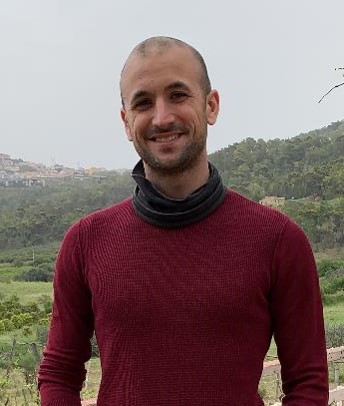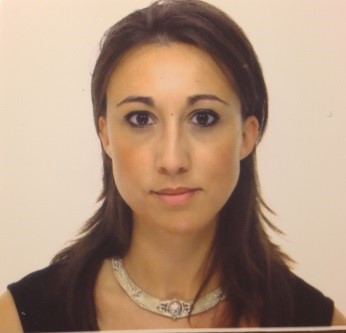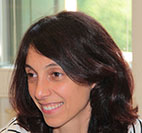Studying at the University of Verona
Here you can find information on the organisational aspects of the Programme, lecture timetables, learning activities and useful contact details for your time at the University, from enrolment to graduation.
Academic calendar
The academic calendar shows the deadlines and scheduled events that are relevant to students, teaching and technical-administrative staff of the University. Public holidays and University closures are also indicated. The academic year normally begins on 1 October each year and ends on 30 September of the following year.
Course calendar
The Academic Calendar sets out the degree programme lecture and exam timetables, as well as the relevant university closure dates..
| Period | From | To |
|---|---|---|
| I semestre | Oct 1, 2019 | Jan 31, 2020 |
| II semestre | Mar 2, 2020 | Jun 12, 2020 |
| Session | From | To |
|---|---|---|
| Sessione invernale d'esame | Feb 3, 2020 | Feb 28, 2020 |
| Sessione estiva d'esame | Jun 15, 2020 | Jul 31, 2020 |
| Sessione autunnale d'esame | Sep 1, 2020 | Sep 30, 2020 |
| Session | From | To |
|---|---|---|
| sessione estiva di laurea LM7 | Jul 13, 2020 | Jul 13, 2020 |
| Sessione autunnale di laurea LM7 | Oct 12, 2020 | Oct 12, 2020 |
| Sessione invernale di laurea LM7 | Mar 11, 2021 | Mar 11, 2021 |
| Period | From | To |
|---|---|---|
| Festa di Ognissanti | Nov 1, 2019 | Nov 1, 2019 |
| Festa dell'Immacolata | Dec 8, 2019 | Dec 8, 2019 |
| Vacanze di Natale | Dec 23, 2019 | Jan 6, 2020 |
| Vacanze di Pasqua | Apr 10, 2020 | Apr 14, 2020 |
| Festa della Liberazione | Apr 25, 2020 | Apr 25, 2020 |
| Festa del lavoro | May 1, 2020 | May 1, 2020 |
| Festa del Santo Patrono | May 21, 2020 | May 21, 2020 |
| Festa della Repubblica | Jun 2, 2020 | Jun 2, 2020 |
| Vacanze estive | Aug 10, 2020 | Aug 23, 2020 |
Exam calendar
Exam dates and rounds are managed by the relevant Science and Engineering Teaching and Student Services Unit.
To view all the exam sessions available, please use the Exam dashboard on ESSE3.
If you forgot your login details or have problems logging in, please contact the relevant IT HelpDesk, or check the login details recovery web page.
Should you have any doubts or questions, please check the Enrollment FAQs
Academic staff
 vittoria.cozza@univr.it
vittoria.cozza@univr.it
Study Plan
The Study Plan includes all modules, teaching and learning activities that each student will need to undertake during their time at the University.
Please select your Study Plan based on your enrollment year.
1° Year
| Modules | Credits | TAF | SSD |
|---|
2 modules among the following2° Year activated in the A.Y. 2020/2021
| Modules | Credits | TAF | SSD |
|---|
Three modules among the following| Modules | Credits | TAF | SSD |
|---|
2 modules among the following| Modules | Credits | TAF | SSD |
|---|
Three modules among the following| Modules | Credits | TAF | SSD |
|---|
Legend | Type of training activity (TTA)
TAF (Type of Educational Activity) All courses and activities are classified into different types of educational activities, indicated by a letter.
Food processing and preservation technologies (2020/2021)
Teaching code
4S001403
Credits
6
Language
Italian
Scientific Disciplinary Sector (SSD)
AGR/15 - FOOD SCIENCE AND TECHNOLOGY
The teaching is organized as follows:
teoria
esercitazioni
Learning outcomes
The course is focused on the problematics and interactions among product, process, storage and packaging within the production processes of the food industry. Aim of the course is to provide the students: • basic knowledges and skills to understand how to deal with the food production problematics; • technical skills to set up and define the most appropriate technological processes and operations needed to achieve and optimize the quality characteristics of a food product; • basic knowledges about properties and characteristics of food packaging materials to select the most appropriate ones, taking into account the production process. The course comprises 5 CFU of frontal teaching and 1 CFU devoted to solving practical numerical exercises and to conducting technical visits to food production plants. The course is focused on the problematics and interactions among product, process, storage and packaging within the production processes of the food industry. Aim of the course is to provide the students: • basic knowledges and skills to understand how to deal with the food production problematics; • technical skills to set up and define the most appropriate technological processes and operations needed to achieve and optimize the quality characteristics of a food product; • basic knowledges about properties and characteristics of food packaging materials to select the most appropriate ones, taking into account the production process. The course comprises 5 CFU of frontal teaching and 1 CFU devoted to solving practical numerical exercises and to conducting technical visits to food production plants.
Program
- Food products characteristics: safety, technical and commercial characteristic – how and why. - The practical approach to the production of a food item: row material-process-product, interaction and limits. - Food preservation, theoretical and practical approach; available technologies, potential applications and limits. - Basic elements of food packaging. - Basics of food legislation. - Detailed description of selected case-studies: - fruit and vegetable products; - eggs and egg products; - fish products - pasta, bread and bakery products; - chocolate products. The various production processes will be discussed in details with respect to food safety, commercial requirements and processing opportunities and limits. Besides the suggested books some reading material could be delivered to the students after the lessons. If possible specific seminars will be organized inviting professionals of the food industries.
Students will be guided to solve real problems of food product development that may occur in the food industry and will be guided to find practical answers by also solving numerical exercises. This will oblige the students to have a global approach to the various issues and to take care of all the possible interactions that may occur among the different components of the raw materials and the various production steps, including the packaging one. Within this frame, students will also participate to guided visits to food production plants or to factories manufacturing equipment for the food industry
Bibliography
| Activity | Author | Title | Publishing house | Year | ISBN | Notes |
|---|---|---|---|---|---|---|
| teoria | Gobbetti M., Corsetti A. | Biotecnologia dei prodotti lievitati da forno | CEA | 2009 | 978-8-808-18121-3 | |
| teoria | Fellows P.J. | Food Processing Technology: Principles and Practice (Edizione 4) | Woodhead Publishing | 2016 | 978-0-081-01907-8 | |
| teoria | Pompei C. | La trasformazione industriale di frutta ed ortaggi. Tecnologie per la produzione di conserve e semiconserve vegetali | Edagricole-New Business Media | 2010 | 978-8-850-65138-2 | |
| teoria | Pompei C. | Operazioni unitarie della tecnologia alimentare | CEA | 2009 | 978-8-808-18342-2 | |
| teoria | R. P. Singh & D. R. Heldman | Principi di tecnologia Alimentare | Ambrosiana | 2015 | ||
| esercitazioni | Gobbetti M., Corsetti A. | Biotecnologia dei prodotti lievitati da forno | CEA | 2009 | 978-8-808-18121-3 | |
| esercitazioni | Fellows P.J. | Food Processing Technology: Principles and Practice (Edizione 4) | Woodhead Publishing | 2016 | 978-0-081-01907-8 | |
| esercitazioni | Pompei C. | La trasformazione industriale di frutta ed ortaggi. Tecnologie per la produzione di conserve e semiconserve vegetali | Edagricole-New Business Media | 2010 | 978-8-850-65138-2 | |
| esercitazioni | Pompei C. | Operazioni unitarie della tecnologia alimentare | CEA | 2009 | 978-8-808-18342-2 | |
| esercitazioni | R. P. Singh & D. R. Heldman | Principi di tecnologia Alimentare | Ambrosiana | 2015 |
Examination Methods
Afterwards, the lecturer will present a practical problem that may be faced in the real working life and will evaluate how the candidate will organize and utilize the scientific and technical skills acquired during the study to highlight a possible solution to the problem. In this way the student will be oriented to study for acquiring not a mere "theoretical knowledge" but a "practical" one. The student will be graded over a score of 30 points, being 18 the minimum score to pass the exam. No different evaluation modalities are planned for students who have attended or not the theoretical and/or the practical part of the course.
Students are not required to take a specific exam for the practical part of the course. However, the acquired knowledge and skills will be evaluated within the oral exam set for the theoretical part of the course, taking into account the students’ capability to adapt and use in the real productive world the acquired theoretical knowledge and skills.
Type D and Type F activities
| years | Modules | TAF | Teacher |
|---|---|---|---|
| 1° 2° | Python programming language | D |
Maurizio Boscaini
(Coordinator)
|
Career prospects
Module/Programme news
News for students
There you will find information, resources and services useful during your time at the University (Student’s exam record, your study plan on ESSE3, Distance Learning courses, university email account, office forms, administrative procedures, etc.). You can log into MyUnivr with your GIA login details: only in this way will you be able to receive notification of all the notices from your teachers and your secretariat via email and also via the Univr app.
Graduation
Deadlines and administrative fulfilments
For deadlines, administrative fulfilments and notices on graduation sessions, please refer to the Graduation Sessions - Science and Engineering service.
Need to activate a thesis internship
For thesis-related internships, it is not always necessary to activate an internship through the Internship Office. For further information, please consult the dedicated document, which can be found in the 'Documents' section of the Internships and work orientation - Science e Engineering service.
Final examination regulations
List of thesis proposals
| theses proposals | Research area |
|---|---|
| Dinamiche della metilazione del DNA e loro contributo durante il processo di maturazione della bacca di vite. | Various topics |
| Miglioramento del profilo nutrizionale e funzionale di sfarinati di cereali mediante fermentazione con batteri lattici | Various topics |
| Risposte trascrittomiche a sollecitazioni ambientali in vite | Various topics |
| Studio delle basi genomico-funzionali del processo di embriogenesi somatica in vite | Various topics |
Attendance
As stated in the Teaching Regulations for the A.Y. 2022/2023, attendance is not mandatory. However, professors may require students to attend lectures for a minimum of hours in order to be able to take the module exam, in which case the methods that will be used to check attendance will be explained at the beginning of the module.

 +39 045 802 7839
+39 045 802 7839























